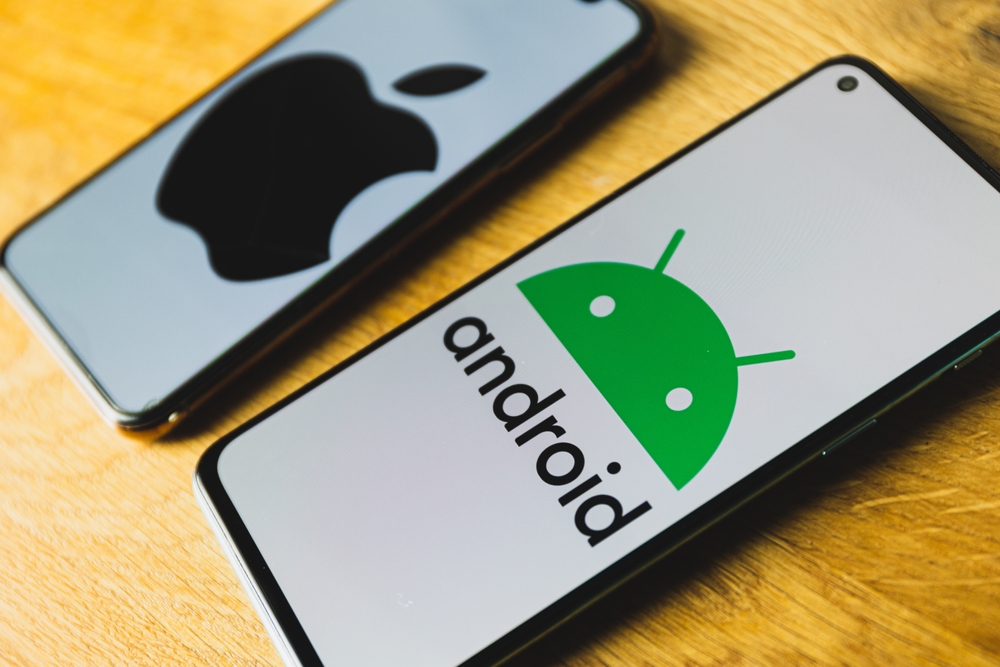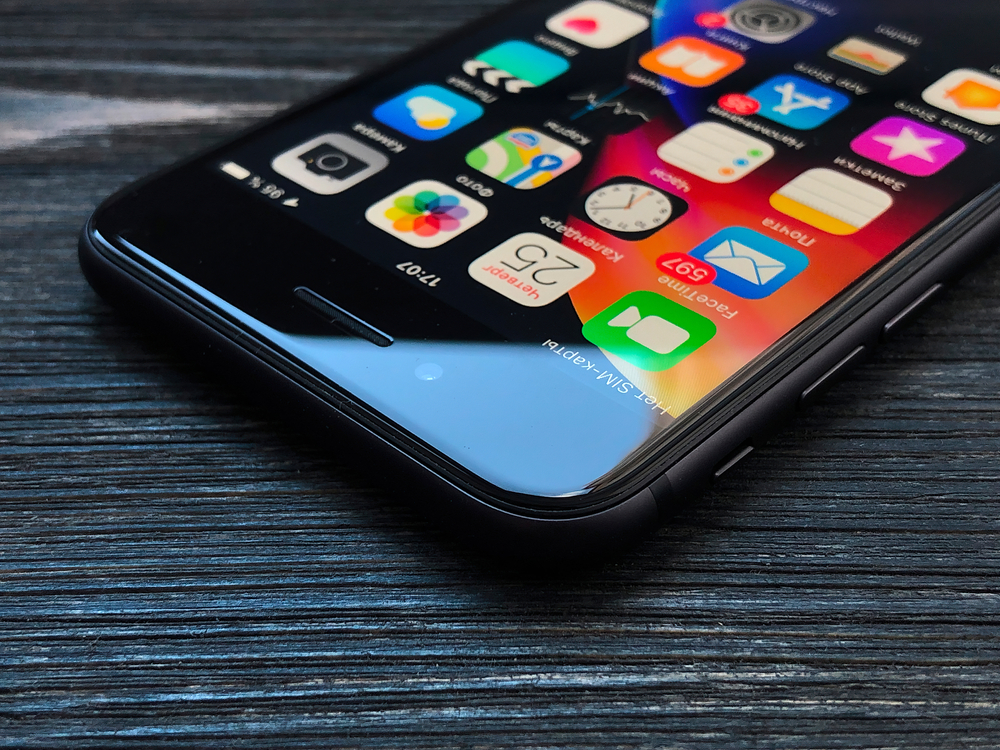
Mastering Mobile App Marketing: Top Tips and Tricks for Successful Promotion

Mobile apps have become an integral part of our daily lives, offering a world of convenience and productivity at our fingertips. However, with millions of apps vying for attention in the crowded app stores, getting your mobile app noticed can be a daunting task. As an app developer or marketer, it is crucial to master the art of mobile app marketing to ensure the success and visibility of your app. In this article, we will explore the top tips and tricks for successful promotion of your mobile Android or iOS app .
1. Define Your Target Audience
Before diving into marketing your mobile Google Play or App Store app , it is vital to understand who your target audience is. Identifying your target audience helps you tailor your app's marketing messages, features, and design to appeal directly to your ideal users. Conduct market research, analyze demographics, and create user personas to gain a deep understanding of your target audience's needs, preferences, and pain points. This knowledge will enable you to craft effective marketing strategies that resonate with your target audience and drive app downloads.
2. Optimize Your App Store Listing
Your mobile app's listing on the app store plays a pivotal role in attracting users' attention and convincing them to download your app. To optimize your app store listing, pay attention to the following key elements:
- App Title: Choose an appealing and memorable app title that reflects your app's purpose and resonates with your target audience.
- Keywords: Research and incorporate relevant keywords in your app's description and metadata to improve visibility in app store searches.
- App Description: Craft a compelling and concise description that communicates your app's unique selling points and benefits. Use bullet points and headers to make it easier for users to scan.
- App Icons and Screenshots: Create visually appealing icons and screenshots that effectively showcase your app's interface, features, and value proposition. Use high-quality images that are properly sized for different devices.
- User Reviews and Ratings: Encourage satisfied users to rate and review your app. Positive reviews and high ratings enhance your app's credibility and encourage new users to download your app.
3. Leverage Social Media Platforms
Social media platforms offer a vast audience and powerful marketing tools for promoting your mobile app . Create dedicated social media profiles for your app, engage with your target audience, and share compelling content related to your app's features, updates, and industry trends. Utilize visually engaging media, such as images and videos, to showcase your app's functionality and benefits. Collaborate with influencers, run contests, and offer exclusive promotions to generate buzz and increase app downloads. Furthermore, consider leveraging social media advertising options to target specific user segments and drive app installations.
4. Implement App Store Optimization (ASO)
Similar to search engine optimization (SEO), App Store Optimization (ASO) is the process of optimizing your mobile app's visibility and ranking in app store searches. Along with optimizing your app store listing, focus on the following ASO techniques:
- App Category and Subcategory: Choose the most relevant and least competitive category and subcategory for your app. This increases your app's visibility and discoverability.
- Localize Your App: If your target audience is global, consider localizing your app's metadata, keywords, and descriptions to appeal to users in different regions.
- Regular App Updates: Consistently updating your app with new features, bug fixes, and improvements shows users and app store algorithms that your app is actively maintained and valuable.
- Analyze Competitor Strategies: Study your competitors' app listings, keywords, and marketing strategies to identify opportunities and differentiate your app.
5. Launch a Website or Landing Page
Creating a dedicated website or landing page for your mobile app can significantly boost your app's discoverability and credibility. The website serves as a central hub for showcasing your app's features, benefits, and user testimonials. It also allows you to capture user email addresses for future marketing campaigns and app updates. Optimize your website for mobile devices, utilize clear call-to-action buttons, and provide direct links to download your app from app stores. Additionally, consider implementing search engine optimization techniques to increase organic traffic to your mobile iOS or Android app website.
6. Implement In-App Referral Programs
Word-of-mouth marketing is a powerful tool for promoting your mobile App Store or Google Play app . Implementing in-app referral programs encourages your existing users to recommend your app to their friends and family, helping you acquire new users without excessive marketing costs. Offer incentives, such as rewards, discounts, or exclusive access, to users who successfully refer others to download and use your app. Ensure the referral process is straightforward and user-friendly, and provide users with clear instructions on how to share their referral codes or links.
Frequently Asked Questions
1. How long does it take to see results from mobile app marketing?
The timeline for seeing results from mobile app marketing varies depending on various factors such as the competitiveness of your industry, the quality of your marketing strategies, and the uniqueness of your app. It is crucial to understand that mobile app marketing is an ongoing process, and it may take several weeks or even months to see significant results. Consistency, quality execution, and continuous optimization are key to achieving success.
2. Should I focus on user acquisition or user retention?
Both user acquisition and user retention are vital for the success of your mobile app. While acquiring new users expands your app's reach, retaining existing users is equally important to ensure long-term engagement. A balanced approach that combines effective user acquisition strategies with strategies to enhance user retention, such as personalized notifications, loyalty programs, and regular updates, can help you achieve sustainable growth for your mobile app.
3. How can I measure the effectiveness of my mobile app marketing campaigns?
Measuring the effectiveness of your mobile app marketing campaigns is crucial for making informed decisions and optimizing your strategies. Key performance indicators (KPIs) such as app downloads, app store rankings, user engagement, and in-app conversions can provide valuable insights into the performance of your campaigns. Utilize app analytics tools, such as Firebase, Google Analytics, or Mixpanel, to track and analyze these metrics. Experiment with A/B testing to identify the most effective marketing messages and strategies.
4. Are paid advertising campaigns necessary for mobile app marketing?
Paid advertising campaigns can significantly boost your mobile app's visibility and reach, particularly in the early stages of app marketing. However, they are not the only avenue for success. It is possible to achieve organic growth through effective ASO techniques, social media engagement, content marketing, and word-of-mouth referrals. A well-rounded mobile app marketing strategy should include a mix of paid and organic channels to maximize your app's exposure and achieve the best return on investment.
5. How often should I update my mobile app?
Regular app updates are essential for maintaining your app's quality, fixing bugs, introducing new features, and improving user experience. While there is no set frequency for app updates, aim for a balance between providing valuable updates to keep users engaged and avoiding excessive updates that may annoy your users. Monitor user feedback, analyze user behavior, and prioritize updates based on user needs, industry trends, and technological advancements.
In conclusion, mastering mobile app marketing requires a well-defined target audience, optimized app store listing, social media engagement, efficient app store optimization, and a dedicated website or landing page. Implementing in-app referral programs and consistently improving your app through updates are also essential. By incorporating these tips and tricks into your mobile app marketing strategy, you can increase your app's visibility, attract the right users, and achieve long-term success in the competitive app market.
Other useful resources
- https://en.wikipedia.org/wiki/App_store_optimization
- https://www.appguru24.com/promote-app/
- https://www.appguru24.com/apps-directory/android/